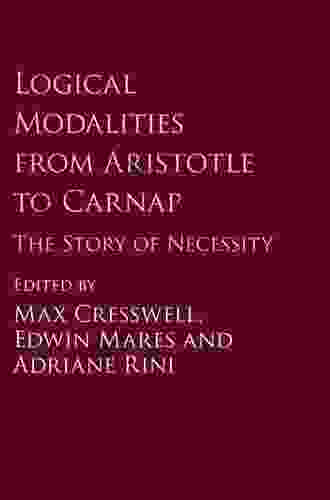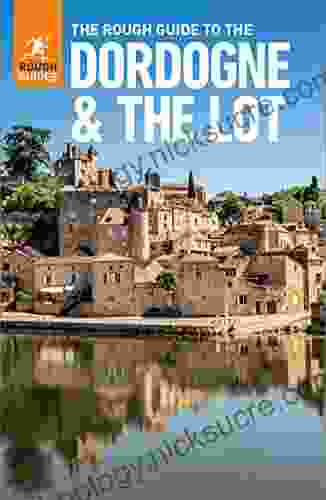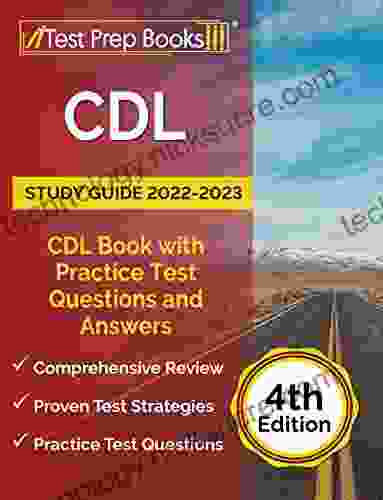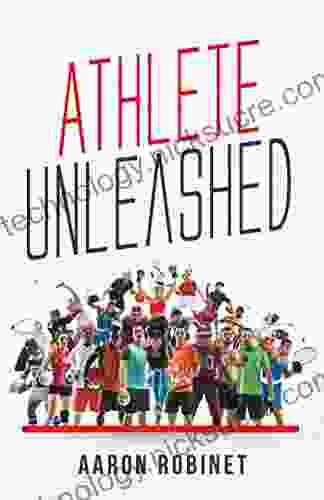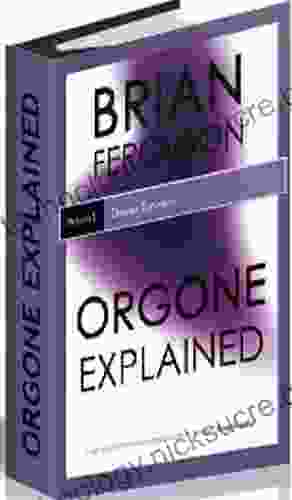Logical Modalities From Aristotle to Carnap: A Comprehensive Exploration

Logical modalities are a set of operators that express the possibility, necessity, or impossibility of a proposition. They have been studied by philosophers and logicians for centuries, and have been used to develop a wide range of philosophical theories.
The earliest known discussion of logical modalities is found in the work of Aristotle. In his Prior Analytics, Aristotle distinguishes between three types of propositions: assertoric, problematic, and apodeictic. Assertoric propositions are those that are simply stated as facts, without any indication of their truth or falsity. Problematic propositions are those that are posed as questions, and apodeictic propositions are those that are stated as necessary truths.
5 out of 5
| Language | : | English |
| File size | : | 1639 KB |
| Text-to-Speech | : | Enabled |
| Screen Reader | : | Supported |
| Enhanced typesetting | : | Enabled |
| Print length | : | 353 pages |
Aristotle's three types of propositions can be seen as the precursors to the modern logical modalities of possibility, contingency, and necessity. Possibility is the operator that expresses the idea that a proposition is true in at least one possible world. Contingency is the operator that expresses the idea that a proposition is true in some possible worlds, but not in others. Necessity is the operator that expresses the idea that a proposition is true in all possible worlds.
In the centuries after Aristotle, logical modalities were further developed by a number of philosophers, including the Stoics, the Epicureans, and the Neoplatonists. However, it was not until the 19th century that logical modalities began to be studied in a systematic way. In 1847, the German logician Franz Brentano published his book On the Several Senses of Being, in which he argued that logical modalities are essential to a complete understanding of logic.
Brentano's work was influential in the development of modern logic, and logical modalities are now considered to be an essential part of the logical toolkit. They have been used to develop a wide range of philosophical theories, including theories of truth, knowledge, and metaphysics.
One of the most important figures in the development of modern logical modalities is Rudolf Carnap. In his 1947 book Meaning and Necessity, Carnap proposed a new theory of logical modalities based on the idea of possible worlds. According to Carnap, a proposition is possible if it is true in at least one possible world, contingent if it is true in some possible worlds but not in others, and necessary if it is true in all possible worlds.
Carnap's theory of logical modalities has been very influential, and it is now the standard theory of logical modalities in modern logic. Logical modalities are now used in a wide range of philosophical and logical applications, and they continue to be a topic of active research.
Applications of Logical Modalities
Logical modalities have a wide range of applications in philosophy and logic. They have been used to develop theories of truth, knowledge, and metaphysics. They have also been used to develop new logical systems, and to analyze the logical structure of natural language.
Truth
Logical modalities can be used to develop theories of truth. For example, the philosopher David Lewis has argued that truth is a matter of correspondence between a proposition and the actual world. According to Lewis, a proposition is true if and only if it is true in the actual world. This theory of truth is based on the idea that the actual world is the only world that exists, and that all other possible worlds are merely hypothetical.
Knowledge
Logical modalities can also be used to develop theories of knowledge. For example, the philosopher Edmund Gettier has argued that knowledge is not simply a matter of true belief. According to Gettier, a person can have a true belief, but not know that it is true. This is because knowledge requires not only that a belief is true, but also that the person who holds the belief is justified in holding it.
Metaphysics
Logical modalities can also be used to develop theories of metaphysics. For example, the philosopher Saul Kripke has argued that the world is not actually made up of objects, but rather of possible objects. According to Kripke, an object is an actual object if and only if it exists in the actual world. All other objects are merely possible objects.
Logical Systems
Logical modalities have also been used to develop new logical systems. For example, the philosopher Kurt Gödel developed a modal logic that is based on the idea of possible worlds. Gödel's modal logic is more expressive than classical logic, and it can be used to express a wider range of propositions.
Natural Language
Logical modalities can also be used to analyze the logical structure of natural language. For example, the philosopher John Searle has argued that natural language contains a number of modal operators, such as "possible," "necessary," and "impossible." Searle has used these operators to develop a theory of the semantics of natural language.
Logical modalities are a powerful tool for philosophical and logical reasoning. They have been used to develop a wide range of theories, and they continue to be a topic of active research.
5 out of 5
| Language | : | English |
| File size | : | 1639 KB |
| Text-to-Speech | : | Enabled |
| Screen Reader | : | Supported |
| Enhanced typesetting | : | Enabled |
| Print length | : | 353 pages |
Do you want to contribute by writing guest posts on this blog?
Please contact us and send us a resume of previous articles that you have written.
 Fiction
Fiction Non Fiction
Non Fiction Romance
Romance Mystery
Mystery Thriller
Thriller SciFi
SciFi Fantasy
Fantasy Horror
Horror Biography
Biography Selfhelp
Selfhelp Business
Business History
History Classics
Classics Poetry
Poetry Childrens
Childrens Young Adult
Young Adult Educational
Educational Cooking
Cooking Travel
Travel Lifestyle
Lifestyle Spirituality
Spirituality Health
Health Fitness
Fitness Technology
Technology Science
Science Arts
Arts Crafts
Crafts DIY
DIY Gardening
Gardening Petcare
Petcare Alexander Jones
Alexander Jones Garth Nix
Garth Nix Sara Shepard
Sara Shepard James Patterson
James Patterson Vimla L Patel
Vimla L Patel Fridtjof Nansen
Fridtjof Nansen Patrick Alan Danaher
Patrick Alan Danaher Paul Volponi
Paul Volponi Linda Egenes
Linda Egenes Sarah Lynne Bowman
Sarah Lynne Bowman Howard Schor
Howard Schor Alessandro Valerani
Alessandro Valerani Brigid Kemmerer
Brigid Kemmerer Jimmy Connors
Jimmy Connors C C Hunter
C C Hunter David J Chalmers
David J Chalmers George Ehrenhaft
George Ehrenhaft Robert L Wolke
Robert L Wolke Aaron Reynolds
Aaron Reynolds Kingsley Amis
Kingsley Amis Celia Hodent
Celia Hodent Jason R Rich
Jason R Rich River
River Richard Ronald
Richard Ronald Georgiann Davis
Georgiann Davis Sky Marsen
Sky Marsen Scott Whitlock
Scott Whitlock Lisa Manterfield
Lisa Manterfield Otto Kroeger
Otto Kroeger Eric Zandona
Eric Zandona Genese Marie Sodikoff
Genese Marie Sodikoff Thomas Cahill
Thomas Cahill Sabine Hossenfelder
Sabine Hossenfelder Hannah V Holmes
Hannah V Holmes Elon Vidal
Elon Vidal Ashton Cartwright
Ashton Cartwright Game Spark
Game Spark Jennifer Boyle
Jennifer Boyle Carla Naumburg
Carla Naumburg Aleister Crowley
Aleister Crowley Bob Palmer
Bob Palmer Dan Jacob
Dan Jacob Michele Filgate
Michele Filgate Barbara Ehrenreich
Barbara Ehrenreich R K Gupta
R K Gupta Jerry C Zee
Jerry C Zee Alex Pentland
Alex Pentland Diana Hopkins
Diana Hopkins Phyllis Good
Phyllis Good Albert W A Schmid
Albert W A Schmid Thomas Jaden
Thomas Jaden Philip Wylie
Philip Wylie Alexander Mackenzie
Alexander Mackenzie Stephen R Lawhead
Stephen R Lawhead Lynn Alley
Lynn Alley Alex Wolf
Alex Wolf Alex Mars
Alex Mars Victoria Wilson
Victoria Wilson Leonhard Euler
Leonhard Euler Michael Steven
Michael Steven Graham Hancock
Graham Hancock Peter Collier
Peter Collier J C Herz
J C Herz S Kelley Harrell
S Kelley Harrell Tony Roig
Tony Roig Aman Gupta
Aman Gupta Chuck Norris
Chuck Norris Henrik Beyer
Henrik Beyer Alicia Ranoldo
Alicia Ranoldo Richard D Easton
Richard D Easton Leigh Hatts
Leigh Hatts Jenna Gottlieb
Jenna Gottlieb Alex Boese
Alex Boese Alexander Clarke
Alexander Clarke Dan Gookin
Dan Gookin Alex J Packer
Alex J Packer Pekka Louhiala
Pekka Louhiala Eric R Kandel
Eric R Kandel Cecil B Hartley
Cecil B Hartley Bruce Johnson
Bruce Johnson Jacob Sannox
Jacob Sannox Philip Ball
Philip Ball David Borgenicht
David Borgenicht Mary Lynne Fernandez
Mary Lynne Fernandez Sheryl Buckland
Sheryl Buckland Jules Wake
Jules Wake Hannah Arendt
Hannah Arendt Phil Jarratt
Phil Jarratt Brad Borkan
Brad Borkan Albert Marrin
Albert Marrin Eric Mason
Eric Mason Alex Banks
Alex Banks Alex Morgan
Alex Morgan Stephanie Ermenegild
Stephanie Ermenegild Jon B Gould
Jon B Gould Phil Hanrahan
Phil Hanrahan Chanice Lee
Chanice Lee James Suzman
James Suzman Julie Berry
Julie Berry Devin Devasquez
Devin Devasquez Robbie Couch
Robbie Couch Anne Bogel
Anne Bogel Nancy Marie Brown
Nancy Marie Brown Richard Cole
Richard Cole Alexander L Co
Alexander L Co Jeff Galloway
Jeff Galloway Christie Cognevich
Christie Cognevich Raj Kumar
Raj Kumar Lisa Silverman
Lisa Silverman Ash Perrin
Ash Perrin George E Vaillant
George E Vaillant Chella Man
Chella Man Caren Cooper
Caren Cooper Cary Nemeroff
Cary Nemeroff Scott Butler
Scott Butler Hadley Wickham
Hadley Wickham Amy Newmark
Amy Newmark Josh Bryant
Josh Bryant Dr Rebecca Harwin
Dr Rebecca Harwin Steve Bechtel
Steve Bechtel Robert W Winters
Robert W Winters George Marshall
George Marshall Danielle Paige
Danielle Paige W C Mcrae
W C Mcrae Elena Zotova
Elena Zotova Earl Swift
Earl Swift Alex Itsios
Alex Itsios Fataniss Store
Fataniss Store Peter Galison
Peter Galison Peter Maguire
Peter Maguire Alexa Whitewolf
Alexa Whitewolf Jeana Jorgensen
Jeana Jorgensen Peter Ross
Peter Ross Angelo Tropea
Angelo Tropea Peter Brown
Peter Brown Gordon Rugg
Gordon Rugg Darl Kuhn
Darl Kuhn Sally Huss
Sally Huss Stephen L Sass
Stephen L Sass Joan Wulff
Joan Wulff Winona Guo
Winona Guo Danielle Tumminio Hansen
Danielle Tumminio Hansen Chris Englert
Chris Englert Katherine Leigh
Katherine Leigh Megan Carle
Megan Carle Mark Reed
Mark Reed Sareen S Gropper
Sareen S Gropper David Farrier
David Farrier John Burroughs
John Burroughs Alexander Boxer
Alexander Boxer Deirdre Martin
Deirdre Martin Kirsten Koza
Kirsten Koza Mary Ellen Hannibal
Mary Ellen Hannibal Steve Helling
Steve Helling Alex Riley
Alex Riley Simon Monk
Simon Monk Luis Angel Echeverria
Luis Angel Echeverria Willard A Palmer
Willard A Palmer Margaret Rooke
Margaret Rooke Roy Plotnick
Roy Plotnick Rebecca Schrag Hershberg
Rebecca Schrag Hershberg Kathryn Purdie
Kathryn Purdie Alex Bellos
Alex Bellos Teresa Denton
Teresa Denton John Kretschmer
John Kretschmer Duncan Butchart
Duncan Butchart Scott L Smith
Scott L Smith John Boyette
John Boyette Jacqueline Tourville
Jacqueline Tourville Beverleigh H Piepers
Beverleigh H Piepers Daniel Defoe
Daniel Defoe Alistair Moffat
Alistair Moffat Donald D Hoffman
Donald D Hoffman Marian Dewane
Marian Dewane Ari Mennander
Ari Mennander Deborah L Davis
Deborah L Davis Kristin Gambaccini
Kristin Gambaccini Alex Zimmerman
Alex Zimmerman Meredith Atwood
Meredith Atwood L Michele Issel
L Michele Issel Tracy Brown Collins
Tracy Brown Collins K D Hume
K D Hume Steve Flink
Steve Flink Kathleen Mcmillan
Kathleen Mcmillan Derrick Niederman
Derrick Niederman Gail M Nelson
Gail M Nelson C J Brown
C J Brown Patrick F Mcmanus
Patrick F Mcmanus Martin Baldridge
Martin Baldridge Sarah Ockwell Smith
Sarah Ockwell Smith Janie B Butts
Janie B Butts Mark Warren
Mark Warren Will Hart
Will Hart Moh Kolli Carnet
Moh Kolli Carnet Pascal Boyer
Pascal Boyer Albert Ellis
Albert Ellis Milan Yerkovich
Milan Yerkovich Ruth Minsky Sender
Ruth Minsky Sender Christina Riggs
Christina Riggs F T Lukens
F T Lukens Daniel Pautrat
Daniel Pautrat Dipika Mukherjee
Dipika Mukherjee Titania Hardie
Titania Hardie Alex Johnson
Alex Johnson Thomas Huhti
Thomas Huhti Taylor Harris
Taylor Harris Erin Bowe
Erin Bowe Alex J Gutman
Alex J Gutman Yang Erche Namu
Yang Erche Namu Alexa Nicole Cucchiara
Alexa Nicole Cucchiara Peter J Feibelman
Peter J Feibelman Hiro Ainana
Hiro Ainana Andrew Zerling
Andrew Zerling Rebecca Wilson
Rebecca Wilson Nate Silver
Nate Silver Kalynn Bayron
Kalynn Bayron Kristen Jane Anderson
Kristen Jane Anderson Kieran Mccarthy
Kieran Mccarthy Julia Wertz
Julia Wertz Jase Robertson
Jase Robertson Larry Pardey
Larry Pardey Jerry C Whitaker
Jerry C Whitaker Gf Denehy
Gf Denehy Michael Terry
Michael Terry Sarah Franklin
Sarah Franklin Sally Moomaw
Sally Moomaw J Richard Hackman
J Richard Hackman Paul Sating
Paul Sating Molly Knox Ostertag
Molly Knox Ostertag Dennis R Helsel
Dennis R Helsel Denny Matthews
Denny Matthews Victor Davis Hanson
Victor Davis Hanson Todd Denault
Todd Denault Oluwaseun Ajayi
Oluwaseun Ajayi Anatoli Boukreev
Anatoli Boukreev Keith H Basso
Keith H Basso Anne Dachel
Anne Dachel Laura Morton Rd
Laura Morton Rd Zach Davis
Zach Davis Laura Eckert
Laura Eckert Don Bendell
Don Bendell Jim Davidson
Jim Davidson Catherine Dawson
Catherine Dawson Stephan Martin
Stephan Martin Namita Prasad
Namita Prasad Sarah Stewart Johnson
Sarah Stewart Johnson Robertson Tait
Robertson Tait Alex Polyakov
Alex Polyakov Ben Malisow
Ben Malisow Linda White
Linda White James Johonnot
James Johonnot Stephon Alexander
Stephon Alexander Alex Hibbert
Alex Hibbert Sam Jalloh
Sam Jalloh Phil Gaimon
Phil Gaimon Jennifer Kramer
Jennifer Kramer Celeste Headlee
Celeste Headlee Ken Schultz
Ken Schultz Robert Penn
Robert Penn John Quick
John Quick Ben Ainslie
Ben Ainslie Rough Guides
Rough Guides Eric Enge
Eric Enge Jon Krakauer
Jon Krakauer Scott Kelly
Scott Kelly Phil Keith
Phil Keith L R Trovillion
L R Trovillion Richard M Foxx
Richard M Foxx Marilynn Hughes
Marilynn Hughes Brent Herrick
Brent Herrick Mark Creasy
Mark Creasy Ernest Hemingway
Ernest Hemingway Upgraded Brain
Upgraded Brain Walter Gretzky
Walter Gretzky Geza Vermes
Geza Vermes Michael Clary
Michael Clary Pedro Domingos
Pedro Domingos Matt Johanson
Matt Johanson Robert Dos Remedios
Robert Dos Remedios Alex Light
Alex Light David Leadbetter
David Leadbetter Alfred P Rovai
Alfred P Rovai Scott Turansky
Scott Turansky Elissa Wall
Elissa Wall Fretta Reitzes
Fretta Reitzes John Stage
John Stage William R Short
William R Short Travis Eliot
Travis Eliot Nancy Silverton
Nancy Silverton Michele Gelfand
Michele Gelfand Amanda Epperson
Amanda Epperson Michael Sandler
Michael Sandler Richard Shotton
Richard Shotton Morgan Lyle
Morgan Lyle Alexander Meyer
Alexander Meyer Nikki Nichols
Nikki Nichols Mark Golds
Mark Golds Jennifer Van Allen
Jennifer Van Allen Albert Hofmann
Albert Hofmann Alberto Villoldo
Alberto Villoldo Jeremy Kubica
Jeremy Kubica Brett Cohen
Brett Cohen Gabriel Levy
Gabriel Levy Alexander Bennett
Alexander Bennett Alan Lightman
Alan Lightman Catherine Crier
Catherine Crier Evan F Moore
Evan F Moore Alfie Kohn
Alfie Kohn Kevin Bales
Kevin Bales Margaret Willson
Margaret Willson Dr Yvonne S Thornton
Dr Yvonne S Thornton Michael Digiacomo
Michael Digiacomo Stanley Cohen
Stanley Cohen Michael Thompson
Michael Thompson Bertus Engelbrecht
Bertus Engelbrecht Alex Bezzerides
Alex Bezzerides Brian Beffort
Brian Beffort Aubrey Sherman
Aubrey Sherman Robert Benson
Robert Benson Karen Casey
Karen Casey Ralph Vacchiano
Ralph Vacchiano Harold Klemp
Harold Klemp Rachael Ray
Rachael Ray Fiaz Rafiq
Fiaz Rafiq Suzanne Collins
Suzanne Collins Greg Michaelson
Greg Michaelson Heather Dale
Heather Dale Terry Marsh
Terry Marsh Alejandro Portes
Alejandro Portes Gordon Feinberg
Gordon Feinberg Arieh Ben Naim
Arieh Ben Naim Peter Matthiessen
Peter Matthiessen Janine Marsh
Janine Marsh Sam Sheridan
Sam Sheridan Diana L Paxson
Diana L Paxson Stormie Omartian
Stormie Omartian Phil Pierce
Phil Pierce Kortney Keisel
Kortney Keisel Audra Fordin
Audra Fordin Eli Burakian
Eli Burakian Lara S Ormiston
Lara S Ormiston Mine Dogucu
Mine Dogucu David L Demets
David L Demets Kevin Gallagher
Kevin Gallagher Kevin Mcaleer
Kevin Mcaleer Tetsu Kariya
Tetsu Kariya Jenny Mackay
Jenny Mackay Roseanne A Brown
Roseanne A Brown Alex Hunter
Alex Hunter G Blake Meike
G Blake Meike Ernest T Stringer
Ernest T Stringer Emma Hansen
Emma Hansen John Thorne
John Thorne Chukwuma Eleodimuo
Chukwuma Eleodimuo Olivia Wildenstein
Olivia Wildenstein Laura Pavlov
Laura Pavlov Daniel Shapiro
Daniel Shapiro Gabriyell Sarom
Gabriyell Sarom Kent David Kelly
Kent David Kelly Don Pitcher
Don Pitcher Theodore X O Connell
Theodore X O Connell David N Myers
David N Myers Scott Fratcher
Scott Fratcher Pamela K Lamb
Pamela K Lamb Tim Moore
Tim Moore Victoria Schwab
Victoria Schwab Katie Edwards
Katie Edwards Jennifer Estep
Jennifer Estep Alex Reinhart
Alex Reinhart Q S Khan
Q S Khan Elizabeth White
Elizabeth White David N Schwartz
David N Schwartz Bill Haggerty
Bill Haggerty David G Kleinbaum
David G Kleinbaum Robert Spindler
Robert Spindler Joe Nobody
Joe Nobody Patrick Taylor
Patrick Taylor Qaiser Feroze
Qaiser Feroze Idan Ravin
Idan Ravin Sophie David
Sophie David Suzie Sheehy
Suzie Sheehy Conn Iggulden
Conn Iggulden Austin Murphy
Austin Murphy Dan Purser Md
Dan Purser Md Vasti Torres
Vasti Torres Anna Post
Anna Post Arshay Cooper
Arshay Cooper Daniel L Everett
Daniel L Everett Shannon Jett
Shannon Jett Stephen Wilbers
Stephen Wilbers Howard Carter
Howard Carter Amber Lia
Amber Lia Tim Cahill
Tim Cahill Cosmic Kids Publications
Cosmic Kids Publications David Thomas
David Thomas Aleksandr Anufriyev
Aleksandr Anufriyev Douglas D Scott
Douglas D Scott Suzanna Mcgee
Suzanna Mcgee Saxon Andrew
Saxon Andrew Jennet Conant
Jennet Conant Thomas Sowell
Thomas Sowell Michael Teitelbaum
Michael Teitelbaum Albert S Tarendash
Albert S Tarendash Olivier Doleuze
Olivier Doleuze Wallace Wang
Wallace Wang Tiffany Dionne
Tiffany Dionne Donnie Eichar
Donnie Eichar Lyn Kelley
Lyn Kelley Janja Lalich
Janja Lalich Marvin Harris
Marvin Harris Albert J Raboteau
Albert J Raboteau Mia King
Mia King Holly Black
Holly Black Alberta Hawse
Alberta Hawse David Shinar
David Shinar Mark Sisson
Mark Sisson Stan Utley
Stan Utley Itzhak Bentov
Itzhak Bentov Pittacus Lore
Pittacus Lore Matthew Johnson
Matthew Johnson Nate Orlowek
Nate Orlowek Paul Trammell
Paul Trammell Gigi Georges
Gigi Georges Alex Gillis
Alex Gillis Alex Wade
Alex Wade Alexander Ferrauti
Alexander Ferrauti Judy Dutton
Judy Dutton Hal Higdon
Hal Higdon Mauricio Fau
Mauricio Fau Ron Mckeefery
Ron Mckeefery Saunders Mac Lane
Saunders Mac Lane Albert Rutherford
Albert Rutherford Steve Warner
Steve Warner Lake E High
Lake E High Brent Zwerneman
Brent Zwerneman Jim Hynes
Jim Hynes Loriann Oberlin
Loriann Oberlin Chip Heath
Chip Heath Duncan Wells
Duncan Wells Sabbithry Persad Mba
Sabbithry Persad Mba Gary Coleman
Gary Coleman Charlene L Edge
Charlene L Edge Ellen Snortland
Ellen Snortland Wesley Bernardini
Wesley Bernardini Gary Nicol
Gary Nicol P J Agness
P J Agness Vanessa Van Edwards
Vanessa Van Edwards Lonely Planet
Lonely Planet Derek Lundy
Derek Lundy Douglas Doman
Douglas Doman Julian B Barbour
Julian B Barbour Yannis Detorakis
Yannis Detorakis Alex Harris
Alex Harris Jennifer Cohen Harper
Jennifer Cohen Harper Kinsey Phifer
Kinsey Phifer Kyle Rohrig
Kyle Rohrig Alessio Mangoni
Alessio Mangoni Alexandra Bracken
Alexandra Bracken Russ Unger
Russ Unger Katrina M Adams
Katrina M Adams Stephen K Hayes
Stephen K Hayes Glenn Rivers
Glenn Rivers Andrew Stellman
Andrew Stellman Martha Sears
Martha Sears Darin Ingels
Darin Ingels Alexander Mccall Smith
Alexander Mccall Smith Soo Kim Abboud
Soo Kim Abboud Aaron Robinet
Aaron Robinet Rajesh K Naz
Rajesh K Naz Alex Guarnaschelli
Alex Guarnaschelli Alda Sigmundsdottir
Alda Sigmundsdottir
Light bulbAdvertise smarter! Our strategic ad space ensures maximum exposure. Reserve your spot today!
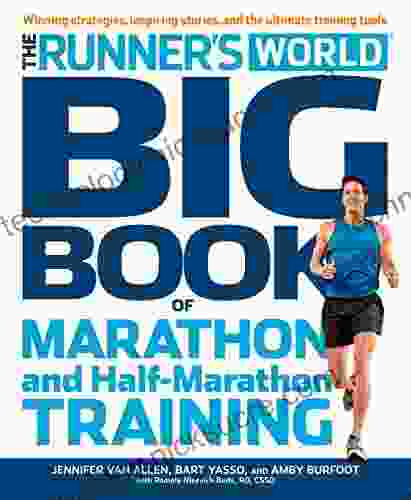
 Preston SimmonsWinning Strategies, Inspiring Stories, and the Ultimate Training Tools: A...
Preston SimmonsWinning Strategies, Inspiring Stories, and the Ultimate Training Tools: A... Ray BlairFollow ·12.6k
Ray BlairFollow ·12.6k Edwin BlairFollow ·19.3k
Edwin BlairFollow ·19.3k Clay PowellFollow ·18.4k
Clay PowellFollow ·18.4k George BellFollow ·19.6k
George BellFollow ·19.6k Leo MitchellFollow ·7.5k
Leo MitchellFollow ·7.5k Dalton FosterFollow ·14.9k
Dalton FosterFollow ·14.9k Raymond ParkerFollow ·5.3k
Raymond ParkerFollow ·5.3k Shane BlairFollow ·8.6k
Shane BlairFollow ·8.6k

 Jeffrey Cox
Jeffrey CoxEasy Recipes And Meal Plans For Healthy Pregnancy
Congratulations on...
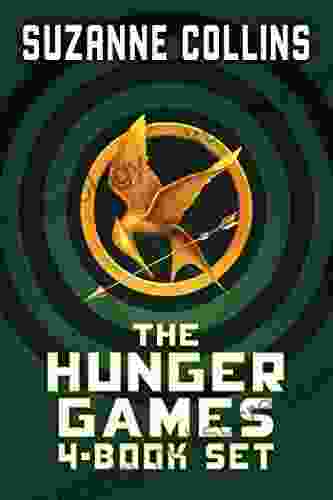
 Andy Cole
Andy ColeDive into the Fiery Ordeal and Mockingjay's Rebellion: An...
: A Captivating Dystopian Saga The...

 Ernest Powell
Ernest PowellLore Alexandra Bracken: Unveiling the Mastermind Behind...
: In the vast expanse of contemporary...
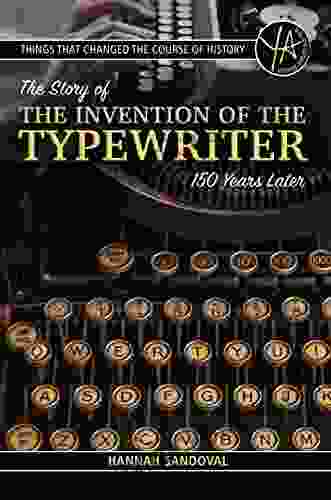
 T.S. Eliot
T.S. EliotThe Story of the Invention of the Typewriter: 150 Years...
The typewriter, a...
5 out of 5
| Language | : | English |
| File size | : | 1639 KB |
| Text-to-Speech | : | Enabled |
| Screen Reader | : | Supported |
| Enhanced typesetting | : | Enabled |
| Print length | : | 353 pages |


